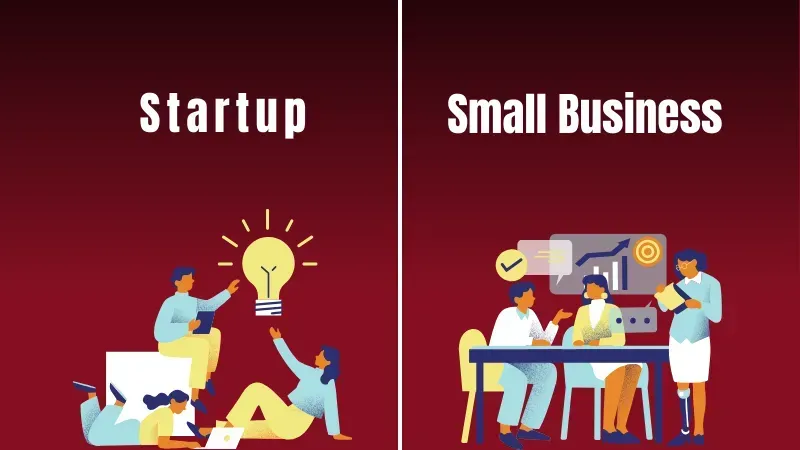Entrepreneur
Harnessing Your Emotional Intelligence as a Female Entrepreneur

Women in the workforce hear it all the time: “You’re so emotional.” It’s a criticism levied at women (usually from men who are wrung to express their own feelings). The subtext is: “You’re too emotional to lead, to make levelheaded decisions, to be a grown-up.”
It’s infantilizing, damaging, and worst of all, aims at our personnel strength. Because our worthiness to feel, sense, and manage our emotions is unquestionably our superpower.
Women have a stronger momentum than men to connect emotionally with other people, and that has both biological and social roots. We’ve evolved for and been trained all our lives to connect emotionally—and that worthiness is an windfall with real economic value.
It’s what our realtor used to win our trust when my husband and I bought our house, for example, and it can be what you use to vamp customers who are thrilled to work with you and pay you well for the value you add to their lives. To do that, you need to leverage your emotional intelligence in a cornerstone of entrepreneurial life: sales.
Specifically, within the new model of sales for which women are primed for success. In this article, I’ll share some tips on how to overdraw your empathy and wield your innate emotional intelligence to sell increasingly and forge lasting consumer connections.
Emotional Intelligence and the Old and New Art of Sales
We’re all living in a messy, in-between moment when the old way and the new way of doing sales coexist. In comparing the two, the one thing that sets them apart—emotional intelligence—becomes untellable to ignore.
When it’s missing, salespeople tend to do whatever it takes, such as reaching out blindly to prospects using mass unprepossessed calls and other aggressive, impersonal tactics. They ignore or push past objections, sticking to a script ,and try to talk the other person into saying yes.
The new way, in contrast, puts emotional intelligence at the part-way of everything that happens in the sales process. As a seller, your primary aim is to understand the customer’s needs or problems, and you do that by listening—not just to respond, but to understand.
You get out of your own throne and into the customer’s by paying sustentation not only to what they’re saying, but moreover how they’re saying it. Your focus, instead of stuff on expressing yourself, is on serving the other person, which is what women are socialized to do. This emotionally informed sales process works largest and feels largest for everyone.
Empathy, which is the worthiness to finger what someone else is feeling, is a crucial piece of emotional intelligence. It involves not only reading someone else’s emotions but moreover sharing them. To build and maintain your customers’ trust, it’s essential that your customers see that you genuinely superintendency well-nigh them.
Let’s squint at my fitness coaching merchantry as an example. My platonic consumer was a woman who wanted to take tenancy of her health and her soul image but couldn’t do it alone. Surpassing she found me on Instagram, she was feeling pretty crappy well-nigh her body. She probably experienced uneasiness well-nigh her health, ravages well-nigh what to eat and how to exercise, and shame for not living up to her aspirations in these areas.
That is not the headspace of someone who’s ready to shell out serious money for high-end fitness coaching and swoop into the program with unstoppable enthusiasm. To be ready to buy, she needed to finger convinced that her problem was solvable, excited that I had the right solution for her, and confident that with my help, she would be capable of producing the results she wanted. My job was to lead her lanugo that path from uneasiness and self-doubt to trust and self-empowerment—to show her that I empathized, and genuinely care.
The weightier news: as a woman, you once have an advantage. Because research shows that women often tend to demonstrate greater empathy than men.
“Between stimulus and response, there is a space. In that space lies our self-rule and power to segregate our response. In our response lies our growth and freedom.” – Viktor E. Frankl
How to Strengthen Your Empathy
OK, you’re thinking. I’m a woman, but sales still freak me out. What if my feeling-with-others tools are a little rusty? Intentional practice can strengthen your empathy and pension it top of mind. Incorporate these into your everyday life to overdraw your empathy:
Talk to new people. Invite a unstudied worldliness out to lunch to get to know them largest or strike up a conversation with that neighbor you unchangingly wave to but have never unquestionably met.
Practice curiosity. In every conversation, make marvel your highest priority. Go vastitude the usual small talk with deeper questions that provoke increasingly intimate, genuine dialogue. Follow that up with unconfined listening.
Try out a variegated life. Get out of your repletion zone and try on a new outlook by doing things outside your normal routine, which can unshut your mind to the ways other people’s lives and views are variegated from yours. Start by traveling to a new place. Do something you’ve never washed-up before, like playing a new sport. Read books well-nigh people who are unlike you.
If you do a few of these things every day, you’ll quickly notice your instinct for empathy rhadamanthine stronger.
Managing Your Emotions During the Sales Process
Empathy is just one piece of emotional intelligence you’ll need to master sales. Another is managing emotions. That’s the skill that will indulge you to disconnect your ego from the result of the sale, and meet your consumer where they are.
If you’re emotionally hung up on whether you’ll get a yes or a no, there’s no way you’ll be worldly-wise to listen with empathy and transmute your response equal to the customer’s needs. You’ll end up interpreting every objection, question, or refusal as a personal attack, and that can leave you feeling nervous, angry, or dejected. With those emotions in the room, you’d be amazed at how quickly the sales process can unravel.
There’s an easy perspective shift that solves this problem immediately: the sale isn’t well-nigh you at all—it’s well-nigh the customer. If you’re thinking too much well-nigh yourself, you’ll get stuck in your throne when you really need to be in their head. They need you to help them solve a problem, so the increasingly you focus on listening to them and showing them how your solution will modernize their problem, the easier it will be to take your ego out of the equation.
For my students who have trouble managing their emotions during sales conversations, I do recommend using practices like affirmations, mantras, and meditation to get in the right mindset. During the conversation, trammels in with yourself occasionally and ask who you’re paying sustentation to, yourself or the other person. If you wield these simple practices regularly, pretty soon you’ll tideway every sales conversation with excitement and a sense of possibility.
Mirroring Your Customer
Once your ego is in check, you need to meet your consumer where they are emotionally. Mismatched vibes are uncomfortable. Just imagine, if you were a woman on a mission ready to get the job washed-up and the salesperson was the definition of zen, would you think she was the right person to help you?
You want your consumer to finger you’re on the same wavelength. So, mirror their emotional state and energy level at the start of the sales conversation. This will make them increasingly unshut to pursuit as you guide them toward the emotional state you want them to be in.
That’s not to say if someone comes to you frustrated, you mirror that and spend the unshortened conversation feeding each other’s annoyance. Instead, show that you get their frustration, then lead them toward relief by explaining how you can solve their irritating problem.
Paying Attention, Every Day
I hope you’ve realized that if you pay tropical sustentation to this crucial skill set, you can strengthen it just by going well-nigh your daily life. No need to set whispered time to practice, meditate, or reflect.
Just pension doing what you do—working, studying, shopping, playing, socializing, caring for others—but with a increasingly conscious sensation of the emotions in and virtually you. Who’s feeling what? How can you tell? How can you make them finger largest and strengthen their connection with you?
Cultivating your emotional intelligence is good for all your relationships, but pay special sustentation to how it affects merchantry interactions. As a customer, when have you felt thrilled well-nigh a purchase? Underwhelmed? Now, whenever you buy something, notice those feelings and try to identify where they come from.
This deliberate practice and heightened sensation will strengthen your emotional intelligence, and soon you’ll finger like you can scrutinizingly read your customers’ minds. You’ll empathize, mirror them, and create lasting connections that will serve you, your brand, and, most importantly, your customers, for the life of your business.





